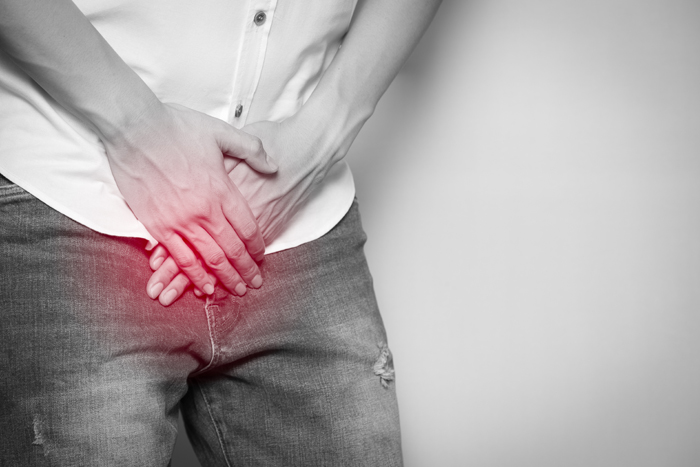Urine Incontinence (Male) Treatment in Koramangala, Bangalore
Simply put, urinary incontinence is involuntary passing of urine. It is one of the major symptoms of issues in men’s urinary tract systems.
To seek treatment, you can consult any of the urology doctors in Bangalore. Or you can search online for a urine incontinence specialist near me.
What do we need to know about urine incontinence?
Urine incontinence is a term for the loss of control over the urinary bladder (which temporarily stores urine), in such cases even sneezing can lead to sudden urination. The act of urination involves nerve signalling and urinary muscles (urinary sphincter). When the bladder gets full, nerve signals contract the muscles of the bladder wall, and this results in passing of urine via urethra.

What are the types of urine incontinence?
- Urge incontinence: It is characterized by the sudden and extremely intense urge to urinate followed by accidental leakage of urine due to untimely squeezing of the bladder. It can also cause frequent urination at night.
- Stress incontinence: It occurs when movements like sneezing, laughing, coughing, exercising or lifting heavy objects increases pressure on the bladder that leads to urine leakage.
- Overflow incontinence: It is characterized by frequent urge to urinate because of an unempty bladder. The urine leaks in the form of dribble. It can also occur because of weak urinary sphincter or blockage in the urethra.
- Functional incontinence: When you cannot make it to the toilet on time due to any physical or mental problems.
- Transient incontinence: It is a temporary type of urine incontinence. It usually occurs because of a short-term urinary tract infection.
- Mixed incontinence: This Incontinence is a combination of the above types. Most often it is the combination of stress and urge incontinence.
What causes urine incontinence in men?
- Urinary tract infection
- Severe cough
- Obesity
- Weak pelvic or bladder sphincter
- Enlargement of the prostate
- Prostate cancer
- Neurological disorders or nerve damage
- Smoking and extreme alcohol consumption
- Physical inactivity
- Increased level of vitamin C in the body
- Heavy doses of heart and blood pressure medicines
- Consumption of sugar-rich food
- Sedatives
- Chronic constipation
You can consult a urine incontinence specialist in Koramangala as well.
When do you need to see a doctor?
When urine incontinence is persistent, immediately seek medical help.
You can request an appointment at Apollo Spectra Hospitals, Koramangala, Bangalore.
Call 1860 500 2244 to book an appointment.
What are the treatments for urine incontinence?
Depending upon the severity of the cause, following treatments can be opted for:
- Lifestyle changes: switch to a healthy diet and do physical exercises daily. Avoid smoking and drinking alcohol instead drink lots of water.
- Practicing Pelvic floor muscle strengthening exercises: It can help in strengthening muscles of pelvis and urinary tract .
- Use of drugs and medications like Anticholinergics to treat problems with bladder muscle, Alpha-blockers are used to treat enlarged prostate
- Surgery: It is done when no other option is left. In men two types of surgeries are done to treat urine incontinence Artificial urinary sphincter (AUS) balloon and sling procedure.
- Behavioural therapy.
Conclusion
Urine incontinence can be an indication of chronic urinary tract problems in men. It can also affect the quality of your social and personal life.
Diagnosis of urine incontinence is very straightforward.
- Through physical examination by a doctor
- Through digital rectal exam: it is used to find out any sort of blockages in the rectum or to detect enlarged prostate
- Through other diagnostic tests like urine culture or blood tests
Although old age and neurological diseases cannot be prevented, causes like unhealthy diet, physical inactivity, obesity, alcoholism and smoking can be addressed to minimise the risk of urine incontinence. Also practice pelvic floor exercises to avoid problems in muscles of the urinary bladder.
Older men: With old age, chances of developing urine incontinence increases as the body becomes weak internally as well as due to the weakening of muscles and nerves Obese and diabetic people Physically inactive men Men with past history of prostate surgery or suffering from conditions like benign prostatic hyperplasia Nervous disorders like Parkinson’s disease, Alzheimer’s disease, and brain strokes as it weakens the nerve signaling Congenital defect in the urinary tract
Symptoms
Our Top Specialities
NOTICE BOARD
CONTACT US
CONTACT US
 Book Appointment
Book Appointment


.svg)
.svg)
.svg)
.svg)








